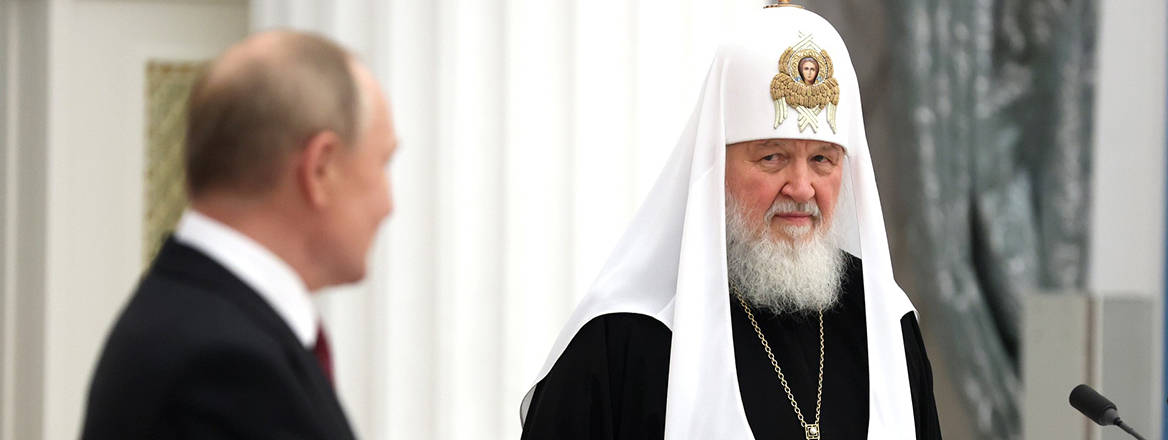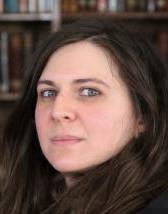Russia’s Messaging Around the ‘Ceasefire’: A Sign of What is to Come?
The Kremlin’s choreography around the proposal for a Christmas ‘ceasefire’ in Ukraine suggests that it may be trying to construct a public narrative over peace negotiations.
On 5 January, Patriarch Kirill, the head of the powerful Russian Orthodox Church (ROC) in Moscow, called for a Christmas truce in Ukraine for 36hrs, maintaining that this was to allow Orthodox Christians to attend services. Hours later, President Vladimir Putin referenced Kirill’s suggestion and ordered that the ceasefire come into effect. Ukraine’s President Volodymyr Zelensky dismissed the proposal as uncredible, maintaining that this was an attempt by Russia to recoup and prepare future attacks. While Russia’s shelling of Ukraine continued largely unabated despite the ceasefire, the optics and the messaging behind Russia’s announcement were important signals about its approach to the war in 2023.
Peace to What End?
First, the announcement signalled a subtle change of rhetoric from Russia. Core elements of the Kremlin’s line on Ukraine have remained. But the ceasefire proposal marks a shift in the presentation of the war, from Putin’s September mobilisation speech – which focused on using all means at Russia’s disposal to protect what Putin views as Russian lands – to more recent comments in December at a press conference in Kyrgyzstan, when he began to moot the idea of a possible settlement process. It could be that the latest deadly attack on Makiivka, where almost 100 Russian soldiers are reported to have been killed, added impetus to the decision to promote a ceasefire.
But the timing is no coincidence, and the New Year might herald a particular stance to come. Although he has not formally thrown his hat into the ring, Putin’s election campaign is set to begin in 2023 ahead of presidential elections next year, alongside important regional elections this year too – a test of confidence in the ruling United Russia party. Given the growing role of regional governors and administrators in cementing Russia’s political control over the annexed territories of Ukraine, any progress on settling the boundaries of the conflict along Russia’s preferred lines will be reflected in public support for United Russia governors.
A large chunk of Putin’s own popularity is built on the idea that he acts as a guarantor of political stability. Promoting a unilateral ceasefire assists in the narrative of Russia-as-peacemaker – notwithstanding Russia’s decision to go to war. Indeed, following the ceasefire announcement, most of Russia’s main channels led with stories of the latest deliveries of arms from the US and Germany to Ukraine, accusing the West of prolonging the war at Ukraine’s expense. In an interview with a Russian newspaper on 10 January, Nikolai Patrushev, the hawkish Secretary of the Security Council, almost seemed to appeal indirectly to the Ukrainian side, accusing NATO of prolonging the war and insisting that Russia was not at war with Ukraine itself. This could be laying the groundwork for potential negotiations in the coming months.
Putin has framed the war in Ukraine as a kind of holy crusade and a struggle for Russia’s very survival
Whether or not the ceasefire was a cynical ploy aimed at the Russian people to bolster Putin and United Russia’s domestic ratings, the Kremlin’s suggestion of a ceasefire – alongside other practical measures such as embedding Russian forces more deeply in trenches in Zaporizhe to hold the frontline – likely signals its intent to freeze the conflict along current territorial lines. Thus far, there have been few serious peace overtures from the Russian side, save for some piecemeal prisoner exchanges. But the ceasefire may also have been a litmus test to determine how the Russian population would respond to the idea of reduced territorial goals in Ukraine – a stark revision of the initial war aims that included regime change in Kyiv.
Optics Explained
The slight theatrics around the announcement of the ceasefire, coming first at the alleged behest of the Patriarch and then with Putin’s own blessing, are also important. It indicated a staged – but also quite real – deference to the ROC. Although such a major political decision would only have come from the Kremlin itself, the choreography of the announcement once again places religion front and centre of this war.
Putin has framed the war in Ukraine as a kind of holy crusade and a struggle for Russia’s very survival. The Patriarch, a long-standing supporter of Putin’s, has been a powerful pro-war voice, blessing the war effort and delivering public sermons claiming that soldiers sacrificing their lives in Ukraine would absolve themselves of previous sins. In his December 2022 New Year’s address – mostly directed toward the Russian troops and their families – Putin used similar imagery, emphasising the defence of Russia’s future as a ‘sacred duty’ owed by Russians to both their ancestors and descendants. The importance of the ROC in Russia’s political-security narratives is not new, but it has a particularly fundamental role in propagating, justifying and now consolidating Russia’s invasion of Ukraine.
The ROC is assisting with the practical and symbolic cementing of Russian control over the annexed territories. On 7 January, Sergei Kiriyenko, first deputy head of the Presidential Administration – who has played a central role in arranging Russia’s political authority in the annexed territories – visited a cathedral in Russian-occupied Kherson, and the site of a new town that Russia is constructing there.
The Kremlin’s decision to involve the Russian Orthodox Church so directly in a high-level political decision such as the ceasefire indicates its likely increasingly active role in the war in the coming months
Kiriyenko is acting as the curator of Russia’s political administration and post-war image in the annexed regions, and his actions offer important signals about Russia’s long-term intentions towards them. Kiriyenko was accompanied by Denis Pushilin, head of the self-proclaimed Donetsk People’s Republic – which Russia unilaterally annexed in September 2022 – and claimed that the Ukrainian authorities had ‘nothing Christian and Orthodox left’. This reinforces the idea that Russia’s political consolidation of the annexed territories brings with it a particular set of values – and a way of seeing the world – that Russia believes to be fundamentally at odds with those in power in Ukraine. This is an extension of a long-standing Kremlin narrative on the war – repeated by Patrushev in his interview – that attempts to pit the Ukrainian people against their own government by suggesting that they are no longer aligned, religiously or otherwise.
The ROC itself may have fewer tools on the ground in Ukraine to serve this narrative. The ROC and one of the Ukrainian Orthodox churches split in 2019 amid political tensions between the two countries. The present war has forced the other Ukrainian Orthodox Church (UOC) to renounce its ties with Moscow, although it only did so under pressure three months after the invasion in May 2022. Since then, the UOC has been criticised for failing to publish a new constitution clearly setting out its independence from Moscow; it continues to hold services that promote Russia’s view of the world, and there are campaigns under way within Ukraine to identify officials from the UOC accused of collaborating with the Russian army in its invasion.
Irrespective of the ROC’s actual ability to influence processes on the ground in Ukraine, the Kremlin’s decision to involve the ROC so directly in a high-level political decision such as the ceasefire indicates its likely increasingly active role in the war in the coming months. The Kremlin may be testing the waters to determine whether the ROC could mediate any future settlement negotiations, by giving the appearance that the ROC is acting independently as a peacemaker. But given the ROC’s proximity to Putin himself, it is highly unlikely that Ukraine would accept such a politicised proposal.
The views expressed in this Commentary are the author’s, and do not represent those of RUSI or any other institution.
Have an idea for a Commentary you’d like to write for us? Send a short pitch to commentaries@rusi.org and we’ll get back to you if it fits into our research interests. Full guidelines for contributors can be found here.
WRITTEN BY
Emily Ferris
RUSI Senior Associate Fellow, International Security
- Jim McLeanMedia Relations Manager+44 (0)7917 373 069JimMc@rusi.org


